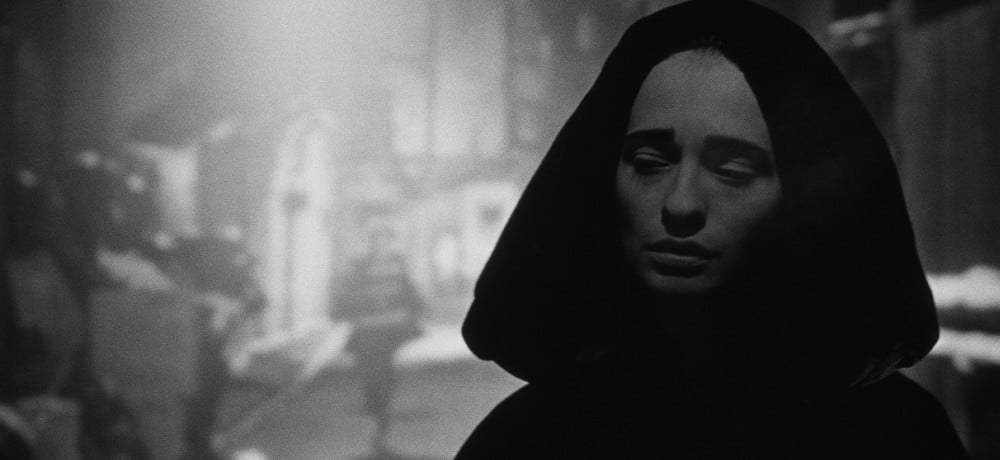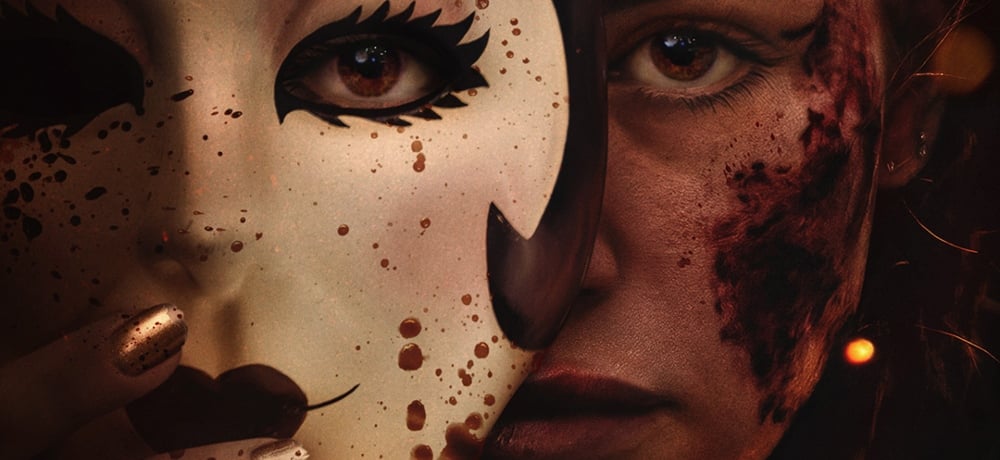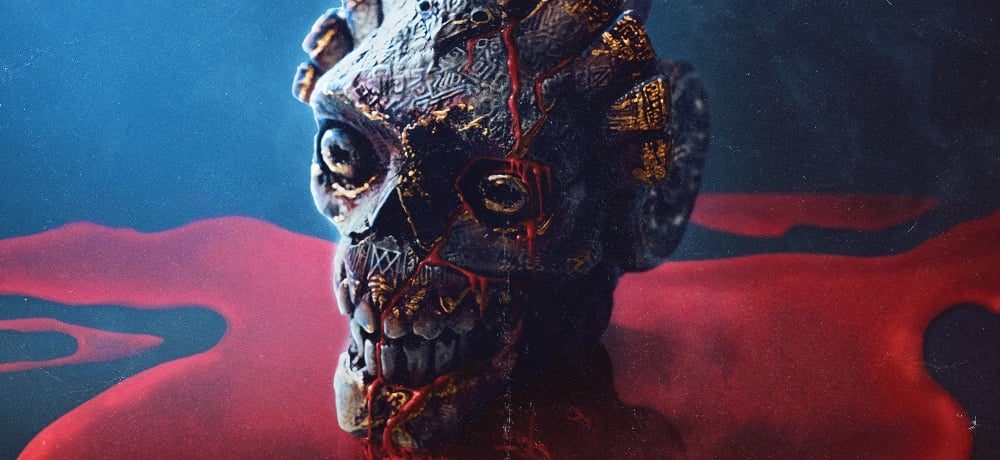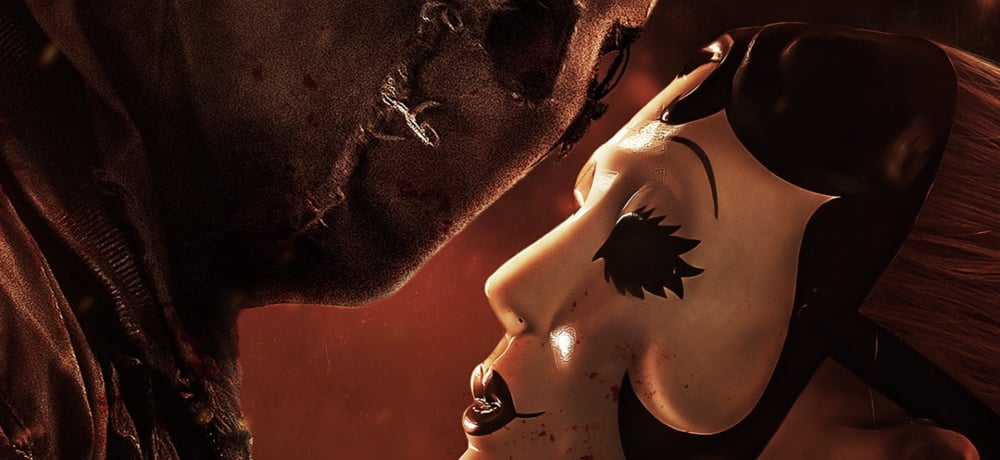





Last week at the 2016 Los Angeles Film Festival, writer/director Chris Sparling’s home invasion thriller, Mercy, celebrated its world premiere. Daily Dead recently chatted with Sparling about his approach to the project, including how he tried to mix things up with different genre tropes in his latest film. Sparling also discussed working with his cast and even took some time to reflect on Buried, the script that launched his career.
Great to speak with you today, Chris. One of the things that really stood out to me in Mercy is the fact that as much as it is this home invasion thriller, it is also a family drama. Can you talk about your approach to the story and where the idea first came from?
Chris Sparling: First of all, yeah, I agree—a lot of it is a family drama. My goal with it was that if you were to strip away the genre elements of the movie, the in-home invasion stuff and everything else, what you'd be left with is still hopefully pretty tense and worth watching—like you said, a family drama.
To me, that's what the first half of the movie is, establishing who these people are in terms of their relationship to one another—what their backstory is, why they clearly don't like each other. Something I kept talking with the actors about was just this notion of how it’s almost like an animal kingdom within these walls, that there's a hierarchy, if you will. There's the stepfather at the top of this food chain and below him are his kids.
Everyone's vying for that top spot, almost like a wolf pack. Everyone's trying to push the top dog out all the time. When you're starting from that place of tension and drama, once you get into the more plot-driven stuff, you're already primed.
That was the origin. I wanted to create something that felt like it was coming from a character place as opposed to just a plot-driven place. With home invasion stuff, it's always scary. Just the notion in general of someone coming to your house is terrifying for anybody, so I wanted to operate at a level of just character tension, building character, building up this inner conflict. Then, like I said, move into a place once everyone's properly primed to lean more into those physical fears.
Yeah, absolutely. Over the last five to ten years, the genre has turned inward in that we are seeing more home invasion movies because more of us are worried about horror at home than we were in the past. Was that the biggest challenge for you as a storyteller coming into this, to find ways to explore those fears that felt wholly different than anything we’ve seen as of late?
Chris Sparling: With anything that I've set out to do, be it as a writer or a writer/director, I want to do something different with it. It's not to say there's no reason to do something again the same way, because there are probably plenty of good reasons, but that was certainly a big driver for me: how could I tackle this particular [genre] in a new and hopefully refreshing way?
I'm not saying you can't go wrong with a home invasion movie because I'm sure you can, and maybe people thought I did with this one. Knowing that was going to be the subgenre of the movie, that was going to be part of what was going on in the action, I wanted to approach it in a way that didn't feel so familiar and just not rely on the fact that, yes, it is scary and people can relate to it. I wanted people to relate to it because, yes, they know what it's like to fight with a relative over inheritance and watch how that tears a family apart, even a good family, which this family isn't. But even in the best of circumstances, families do fall apart.
The other thing was the shift in perspective. All too often it's the story of the protagonist. You are seeing their motivations and seeing their justifications for why they're doing what they're doing. There has to be a reason why the bad guys are doing what they're doing, even if it's just because they're deranged individuals. Well, sometimes it's interesting to know why they're deranged individuals.
In this case it's not that, but I wanted to open up the lens, open up the perspective to “all right, this is their story now.” We saw the people whose home was invaded. We saw what got them to that point and why they found themselves in that situation and how they're reacting to it. I wanted to then show why the people that are invading the home are doing what they're doing. Then leave it to the audience to essentially decide which of the two parties are in the right.
There were a lot of moments when you let the characters breathe onscreen, and parts of it before the invasion almost felt like a stage play. Could you talk about your actors and your approach to working with them on Mercy.
Chris Sparling: It certainly helps to cast well. I was lucky enough to be able to cast well, between Jimmy [Wolk] and Caitlin [FitzGerald] and Tom [Lipinski] and both Michaels [Donovan and Godere], and Dan Ziskie. They were great, great actors, so it makes my life that much easier as a director to get the performances that you're hoping for when you're already dealing with fantastic actors.
What I was always aiming for, and trying to get them to aim for, was to take their time. It's funny, and I actually appreciate hearing you say that the movie felt like it breathed and the characters had their opportunity to take their time, because I have seen the film so many times now, and you can't help but be hypercritical about every piece of it. I'm like, "Man, I feel like it's rushed. It's more rushed than I thought it should be." That's good and refreshing to hear that maybe you felt a little bit of the opposite, so thank you.
Before we go, I wanted to geek out for a moment over a project you did early in your career, Buried, because I’m a big fan of that film. What was the process of trying to get that script off the ground, because I can't imagine a lot of people looked at that concept, which was so bold and audacious, and thought, “Oh yes, this is a movie I have to make.” It’s a risky idea and that’s one of the reasons I love it as much as I do.
Chris Sparling: Buried was my breakout thing. I'd been writing for about ten years prior to that script, trying to break in as it were. I was going to make Buried for five grand on my own, and I was going to direct it, too.
That was my idea because, pretty much to your point, I didn't think anyone in Hollywood would have any interest in this script. But I knew I could make it. Thankfully, it took on a bigger life when we got a director, Rodrigo [Cortés], on board who really had a vision for it and just took it to some really great heights. As far as what the process was, strangely enough, Buried came together very, very quickly. You would think it would've been hard, and I guess it was in its own right, but if I remember correctly, the timeline was that the script went out around town in March of 2009 and then it was playing at Sundance in January 2010.
Less than a year later it had been read, cast, shot, edited, and finished in time for Sundance. I will tell you that it was all because of Peter Safran. Prior to him, I'd met with folks that were like, "We really like the script, but if we’re going to come on board, we'd cut to this person, cut to that person, see them, at least the people he's talking to, or midway through the movie he gets out of the coffin, out of the box or whatever, and then we're following him through the desert." Stuff like that.
It was a tough spot for me because this is my break, right? It was tempting to make those changes and maybe I would've been okay with them because I just wanted to finally get my proverbial break. But at the same time, I knew there was something unique and cool about the idea of keeping this guy here the whole time and the camera staying there the whole time.
But when I met with Peter, he was like, "Look, Chris. I love your script. I know the perfect director to do it and I can have it in production in six months." I said, "Okay, that sounds good. Where do I sign?" And true to his word, that's exactly what happened.